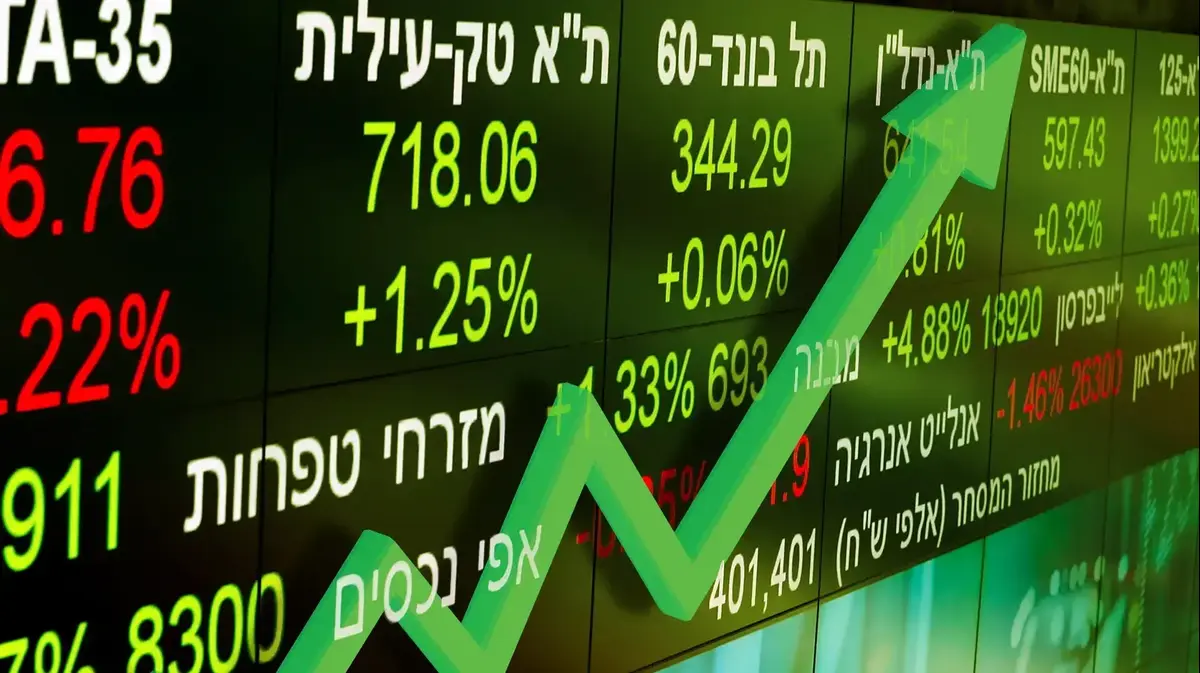This week in markets: "Even if the virus cures within two or three months, the global economy is significant"
"Financial markets believe the corona is a transitory phenomenon and interest rate cuts will compensate for the short-term impact on global economic activity," writes Poalim Bank economists this week to publish a wealth of macro data, including: Japan's growth rate and consumer price index in the Globe's weekly outlook
Overseas Trading Week is expected to open tomorrow, marking the continued overseas headlines on the spread of the Corona virus, and continuing to close on its last Wall Street trading day, and markets appear to be indifferent to the spread of the virus. Tomorrow's Wall Street trade is not expected due to President's Day.
"Financial markets believe that the Corona is a transient phenomenon and interest rate cuts will compensate for the short-term damage to global economic activity," Bank Economist workers write in their weekly review. "It's hard to argue with the wisdom of the masses embodied in the markets, but at least according to the visible to date, even if the virus ceases within two or three months, the global economic downturn is significant. It begins with China's manufacturing operations and continues in the tourism and flight industries. One could say that such a scenario could contain, notably If the central banks help with even more expansive policies, there is still some risk that the virus will spread to other countries and we will not get rid of it as quickly. The markets believe that the probability is probably zero, otherwise it is difficult to explain how stock markets continue to climb. "
The increase in corona virus deaths and infections is continuing, although there has been no worsening infection rates, with the first deaths in the UK and Taiwan. China's government is taking many steps to reduce the number of infections, and it is also working in the economic sphere to mitigate the impact on the economy, such as lowering interest rates, raising money for the banking system, expanding credit and providing subsidies to households and companies that are facing difficulties. "China's economic activity is still largely paralyzed. Many cities in China, beyond those in Hubei Province, are in the form of closure and only some of the factories in China have returned to work. Assuming that the epidemic continues in the coming month, China's first quarter output may not grow at all, and may even decline," workers wrote . "The chance of such a figure being published in China is not high."
A major impact on the world of aviation and tourism
"Official figures for tourist traffic in January have not yet been published, but the decline in passenger traffic in the world is already felt. Several countries, including Israel, have issued travel warnings to other countries besides China, and many travelers have opted to cancel flights mainly to the ASI region," workers wrote. According to International Airlines (IATA), the Asia-Pacific region is the most vulnerable to the Corona crisis, with 42% of their passengers coming from China, with revenue from domestic flights in China accounting for almost one-third of the region's total revenue. Workers note that in other regions, the injury is likely to be much lower, with international flights from China accounting for a maximum of 5% of total revenue, an injury that is at least partially offset by the drop in fuel prices. "If flight restrictions are extended to other Asian countries, the decline in airlines' revenues is likely to be much greater. In this scenario, the exposure of airlines in the Middle East region, which is a link between Asia and Europe, will increase from 3% to almost 50%."
Macro: Japan Growth and Fed Protocol
This week, a lot of macro data is expected to be published worldwide. Japan's growth rate for the fourth quarter will be announced tomorrow. Economists expect a 0.9% contraction in Japanese GDP. Germany's ZEW Economic Sentiment Survey for February is expected to be released on Tuesday, with projections rising by 5 points to 30 points. The Empire State production index for February will be published on the same day in February. Forecasts are up 5 points from a 4.8 point reading the previous month.
On Wednesday in the UK, the CPI for January and inflation data for 2019 will be published in the US on the same day, and the January Manufacturer Price Index. On Wednesday evening, the Fed's open market committee report will be published from the last meeting.
On Thursday, the European Bank will publish its monetary policy account. And in the US, the Philadelphia Manufacturing Index will be published in February. On Friday, the Manufacturing Sector Index will be published in the Eurozone, UK and Germany, alongside the publication of the annual Eurozone consumer price index.
In the domestic market: 4.6% growth in the fourth quarter of 2019
The Central Bureau of Statistics has updated the economy's growth rate in 2019 to 3.5%, following the weighting of the fourth quarter of this year. At the end of 2019, the CBS projected growth for the same year at 3.3%, before the latest quarterly figures were obtained. Now, after the update, the economy is experiencing stronger growth in 2019 than it was in 2018 (3.4%).
Last Friday, the January price index was published in the economy, showing a decline of 0.4%, compared with the market forecast for a decline of 0.3%. There were no big surprises in the various index items, beyond the 0.5% drop in food prices. The CPI rose 0.3% in the last 12 months. The appreciation effect is evident in most of the items, and is expected to continue to affect the upcoming price indices.
"Inflation over the next few months will be affected by the continued appreciation and the impact of the Corona virus, which works to reduce the prices of services such as flights and leisure abroad," according to Bank economists. "If the spread of the virus does not stop, goods originating in China are likely to rise. We continue to assume that tax increases will contribute to the 0.2% index in the coming year, though the government's policy of reducing the deficit depends on the composition of the government that will be established, and we cannot quantify it. The impact of the exchange rate on inflation is high, and we assume that the Bank of Israel policy will work to moderate the appreciation. Assuming stability in the shekel exchange rate, we believe that inflation will be close to the lower limit of the target, and will amount to 0.9% in the next 12 months. "


/cloudfront-eu-central-1.images.arcpublishing.com/prisa/HWNXJOM4ENEOHCQN3NSKWWMECM.jpg)






